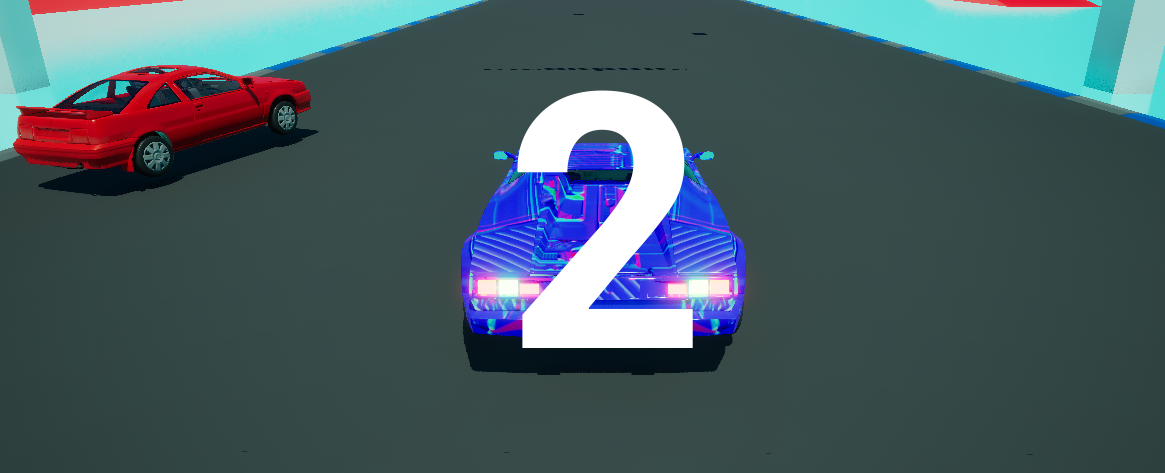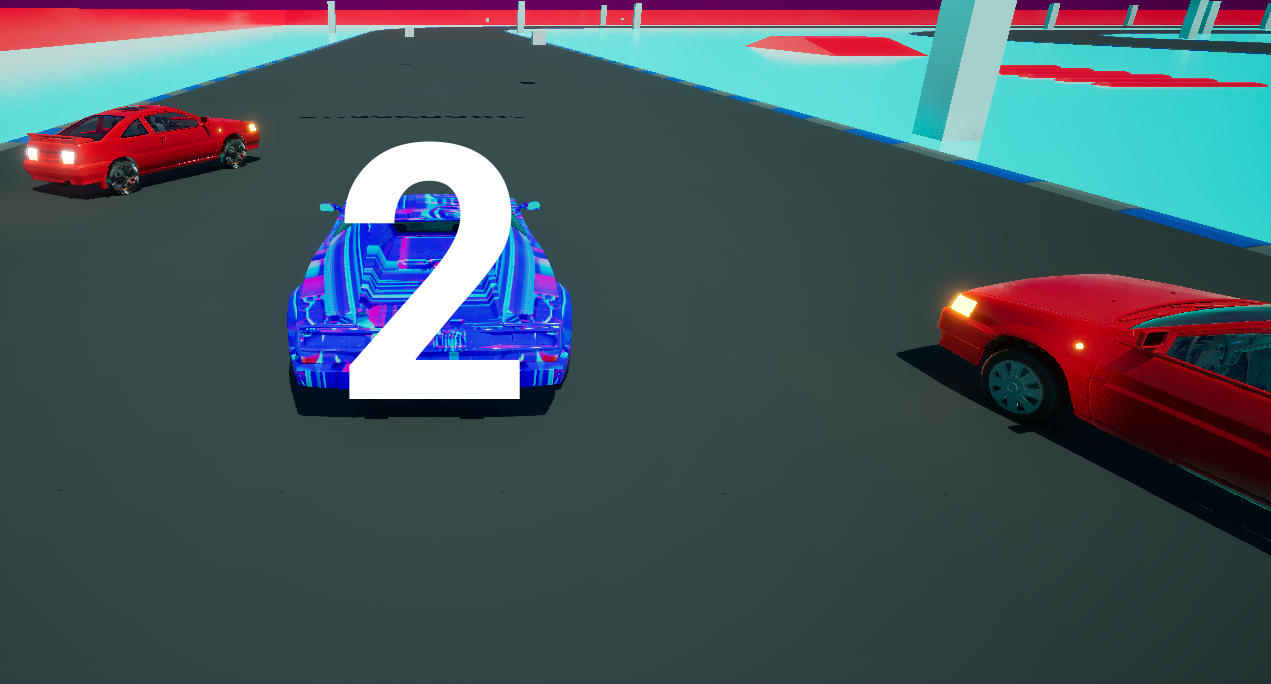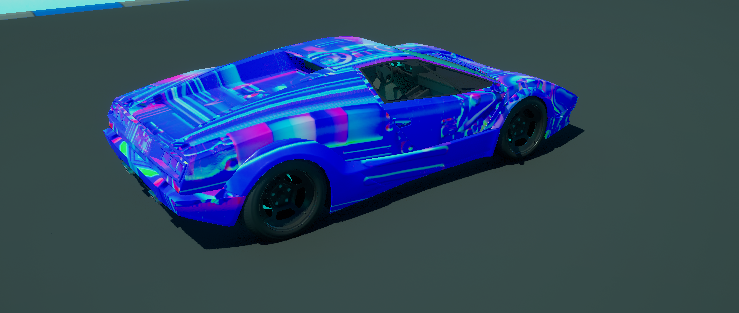Challenges When Replacing Car Models
Author: Reece Meck
Date: October 23, 2025
This week I ran into some unexpected challenges while trying to replace the default car model in Unreal Engine’s racing template with our team’s new vehicle meshes. At first, I assumed that swapping the skeletal mesh would be enough for everything to function correctly, but that quickly turned out not to be the case.Once the new models were in place, I noticed issues like the cars “floating” above the ground, wheels clipping through the track, the overall driving physics feeling off, and the worst thing NO input was given to the car (player was unable to drive at all!!!). These problems came down to how the new models were set up... the wheel bones, suspension points, and offsets didn’t match the original template’s configuration. Simply assigning the new mesh broke the expected relationships between the skeletal structure and the physics system.

(^ In these images you can see the AI car floating, as well as the player (though for the player it may be harder to see due to current camera angle).
To fix this, I had to go beyond just swapping meshes. I adjusted each vehicle’s wheel setup, corrected the bone references for the suspension and tire positions, and fine-tuned the wheel offsets to ensure proper alignment with the ground. This involved both editor adjustments and verifying the wheel positions during runtime to make sure the visuals and collision matched the car’s actual physics.
After these fixes, the cars behaved much more naturally... they now sit correctly on the track and handle just as well as the default template car. This process taught me that Unreal’s racing template is heavily dependent on proper skeletal hierarchy and wheel placement, and that importing custom vehicles requires more technical setup than just replacing the model.


(^ In these images you can see that the cars are level with the track now!)
Get Neon Rush
Neon Rush
| Status | In development |
| Authors | FSUTeam, Pneulysta, OneToast, forevergareth |
| Genre | Racing |
More posts
- Updated Game Release!3 days ago
- Starting the save system and its UI24 days ago
- Resetting Wondering Racers24 days ago
- Finishing Up the AI and Starting the Garage!24 days ago
- Spline Directional Calculations for Race Direction30 days ago
- Making the option menu and what came from this week30 days ago
- The Problem with Unreal Engine’s Default Kill Plane30 days ago
- AI Movement: Troubles and Solutions30 days ago
- Ensuring Fairness in Neon Rush37 days ago
Leave a comment
Log in with itch.io to leave a comment.